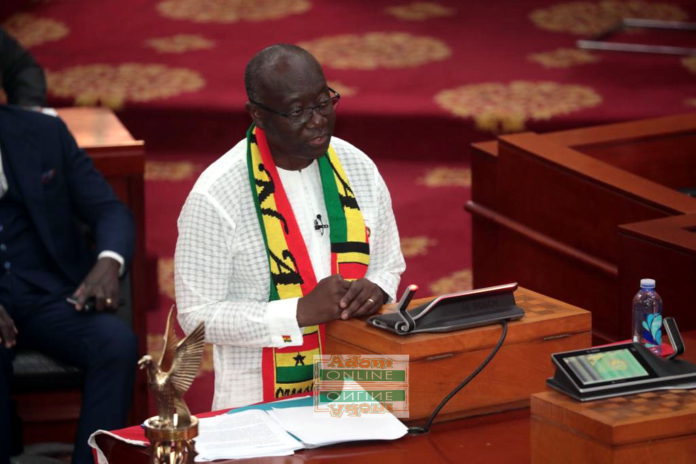Some Ghanaians, if not many, are calling for the head of Ghana’s Finance Minister, Ken Kuntunkunuku Ofori-Atta for his “unsatisfactory” performance in keeping the economy in the desired shape.
The leader in the call is the Minority NDC in Parliament to the extent of activating Article 82 of the 1992 Constitution through which Parliament could issue a vote of censure.
Whether failed or not, Haruna Iddrisu insists “we the Minority will not give up on our quest to push Ofori-Atta out if possible though the Minority per constitutional imperative will need two-thirds vote to achieve that.”
And with the current hung Parliament, the Minority will need the support of the Majority.
Interestingly enough, some 90 members of the Majority had called on President Akufo-Addo to give his Finance Minister a sack. A decision, the President will only take if both hands are tied up by metal locks, or will never happen.
The departure, however, is that, though the Majority and Minority are all singing the same song, the paths of achieving same objective differ.
The Minority has called on the Majority to add its numbers to theirs to achieve the Ken-Must-Go agenda, but the Majority says, “we want Ken ousted” but “won’t support the Minority’s motion of censure”.
This, however, has brought a lot of questions as to when the Finance Minister, Ken Ofori-Atta is leaving.
The initial plea to the ‘Majority’ who first made history by being the MPs from the ruling party to have called on the President to sack their own Minister was to have the Minister read the budget statement and economic policy and complete the International Monetary Fund negotiations before leaving the office.
But the Majority says, despite all the consultations from the party elders, the colour and form of their call will not change. The call is simple “Ken-Must-Go.”
Will Ken indeed go? And if yes is it when the budget presentation is done, IMF ongoing, appropriation or debate in the offing?
My take.
I think the Speaker of Parliament erred in the application of Article 82 of the laid down processes in ousting a minister by censure.
The sense in the entire article is that the reference of a motion of censure to an Adhoc Committee is alien to the letter and spirit.
Even though, article 103 (3) states “ Committees of Parliament shall be charged with such functions, including the investigation and inquiry into the activities and administration of ministries and departments as Parliament may determine; and such investigation and inquiries may extend to proposals for legislation.”
This kind of investigation cannot be the same as censure motion per the argument of the Speaker.
After the mature period to activate the motion, the next thing must have been the debate of the motion per article 82 )2)(3) and (4).
Article 82 (3) and (4) said after the seven days maturity period of the motion:
(3) The motion shall be debated in Parliament within 14 days after the receipt by the Speaker of the notice for the motion.
(4) A Minister of State in respect of whom a vote of censure is debated under clause (3) of this article is entitled, during the debate, to be heard in his defence.
This Minister per above is to be heard “during the debate” and not before the debate as the Speaker has done.
The argument the Minister cannot be heard in the plenary doesn’t arise because ministers are allowed to make statements on the floor.

